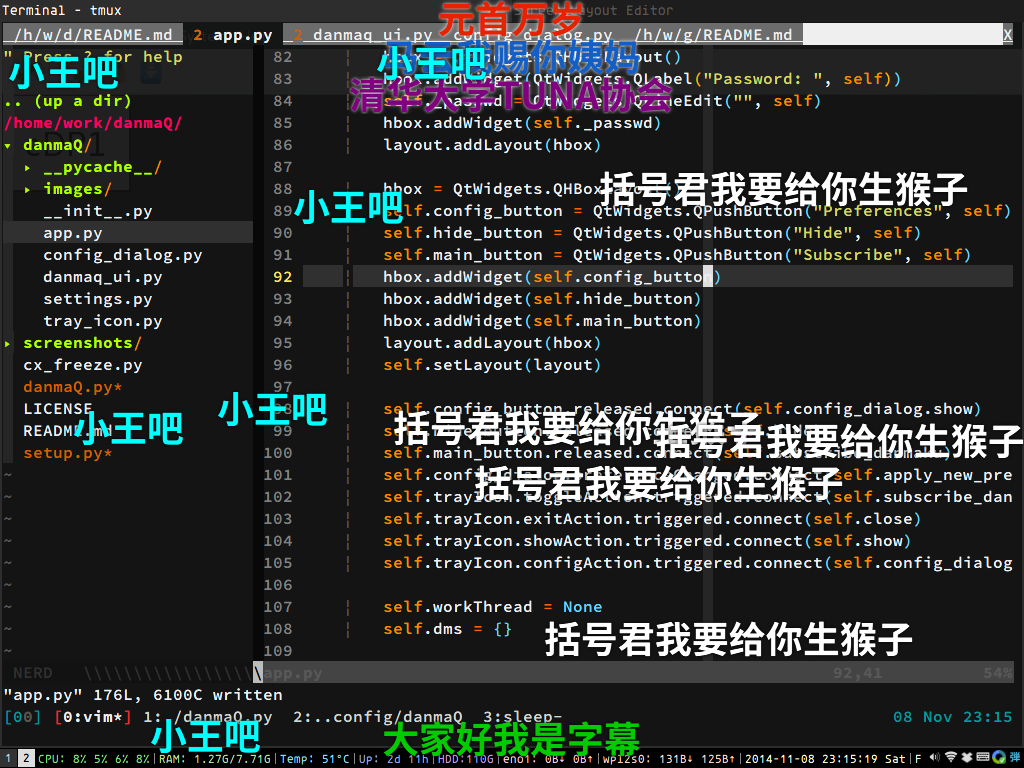DanmaQ, pronounced as /danmakju:/ is a small QT program to play danmaku on any screen.
DanmaQ is still under development, documents might be outdated.
danmaQ depends on Qt5, version >= 5.6.2 preferred.
On Linux X86-64, you can download the bundled AppImage.
wget https://github.com/tuna/danmaQ/releases/download/cpp-0.1/danmaQ.AppImage
chmod +x danmaQ.AppImage
./danmaQ.AppImage
apt-get install qt5-default qttools5-dev qttools5-dev-tools libqt5x11extras5-dev cmake # for ubuntu trusty (aka 14.04 LTS) and debian jessie (aka 8)
apt-get install qt5-default qttools5-dev-tools libqt5x11extras5-dev cmake # for ubuntu and debian
zypper install libqt5-qtx11extras-devel libqt5-linguist-devel cmake # for openSUSE
dnf install qt5-devel qt5-qtx11extras-devel qt5-linguist cmake # for fedora
brew install qt # for macOS
mkdir build && cd build
cmake .. -DCMAKE_INSTALL_PREFIX=/usr -DCMAKE_BUILD_TYPE=Release
make && sudo make install
Download binary from releases page.
Or you can also use CMake and Qt to build it yourself, but there is no help available temporarily.
pacman -S danmaq
dnf install danmaq
apt install danmaq
First you need to create a channel, go to https://dm.tuna.moe:8443/ and create a channel,
(let's use ooxx as the channel name and passw0rd as the password)
Then run danmaQ and fill https://dm.tuna.moe:8443 to server,
and channel name (ooxx) & channel password (passw0rd).
Then any audiences can open https://dm.tuna.moe:8443/ and click to your channel page, lauch danmaku in your screen!
See gdanmaku-server.
- Multi-Screen support
- Chatting
- RPM package
- Deb package
